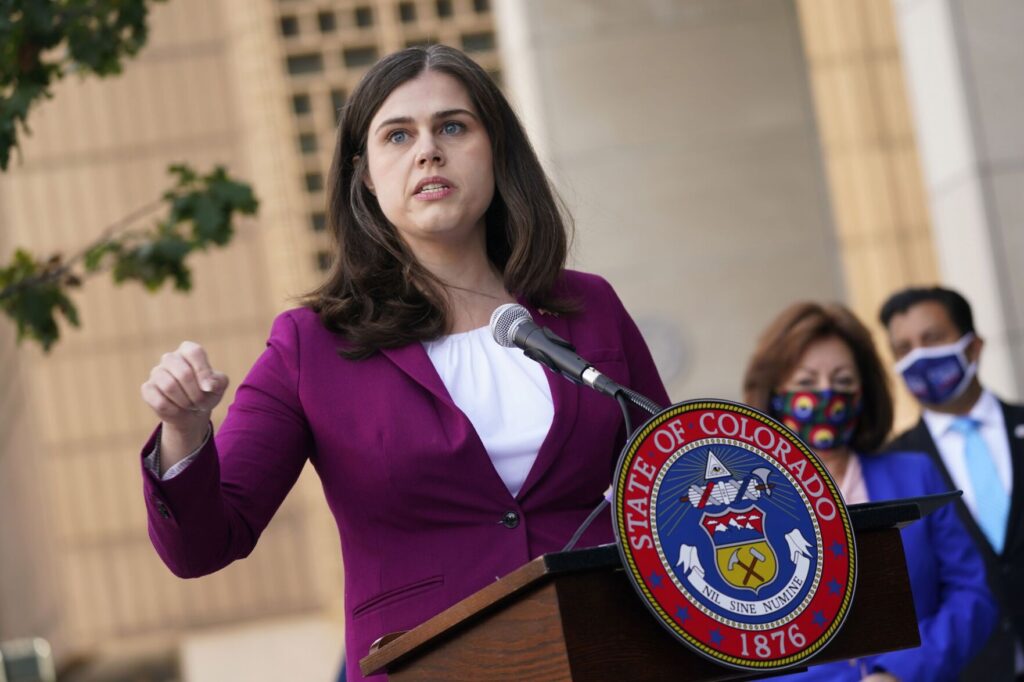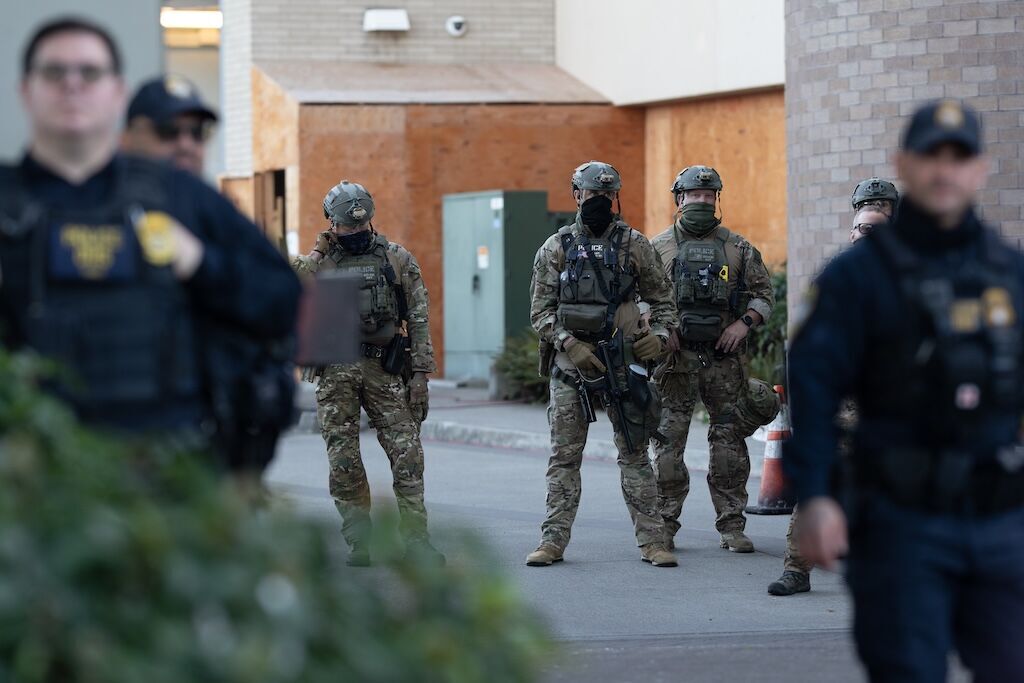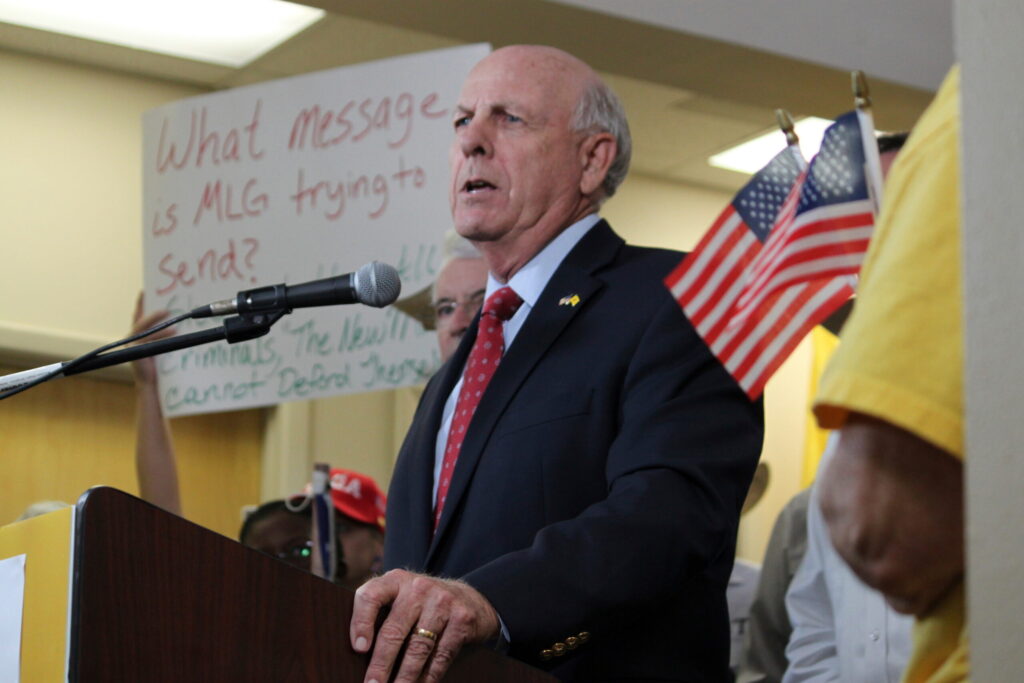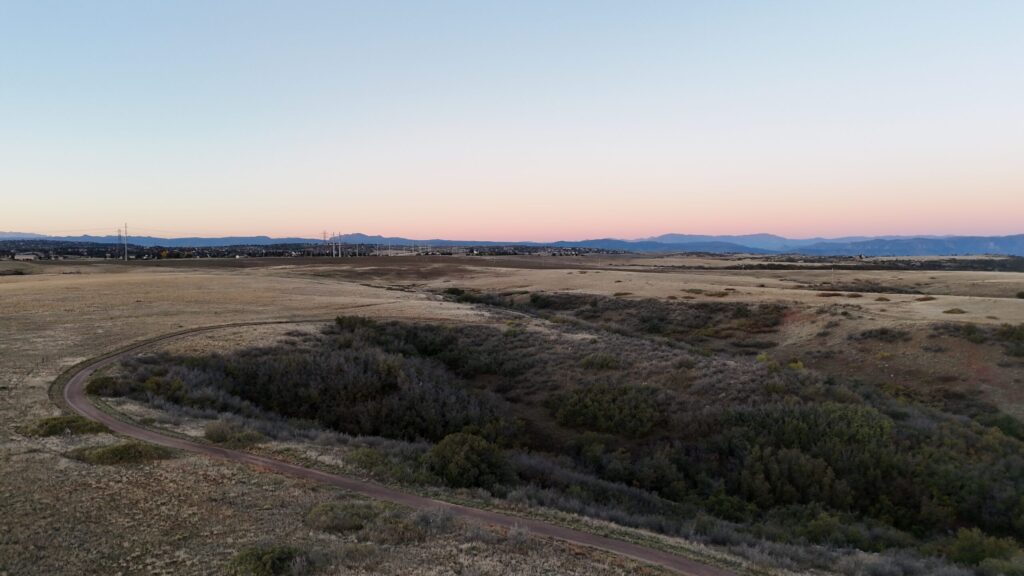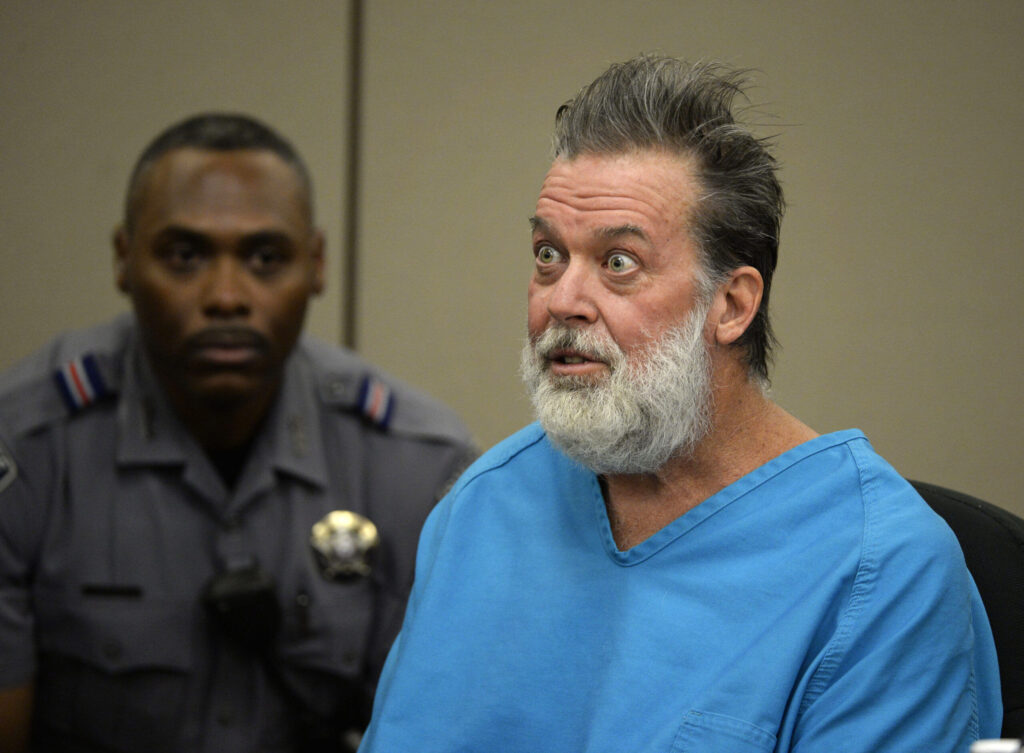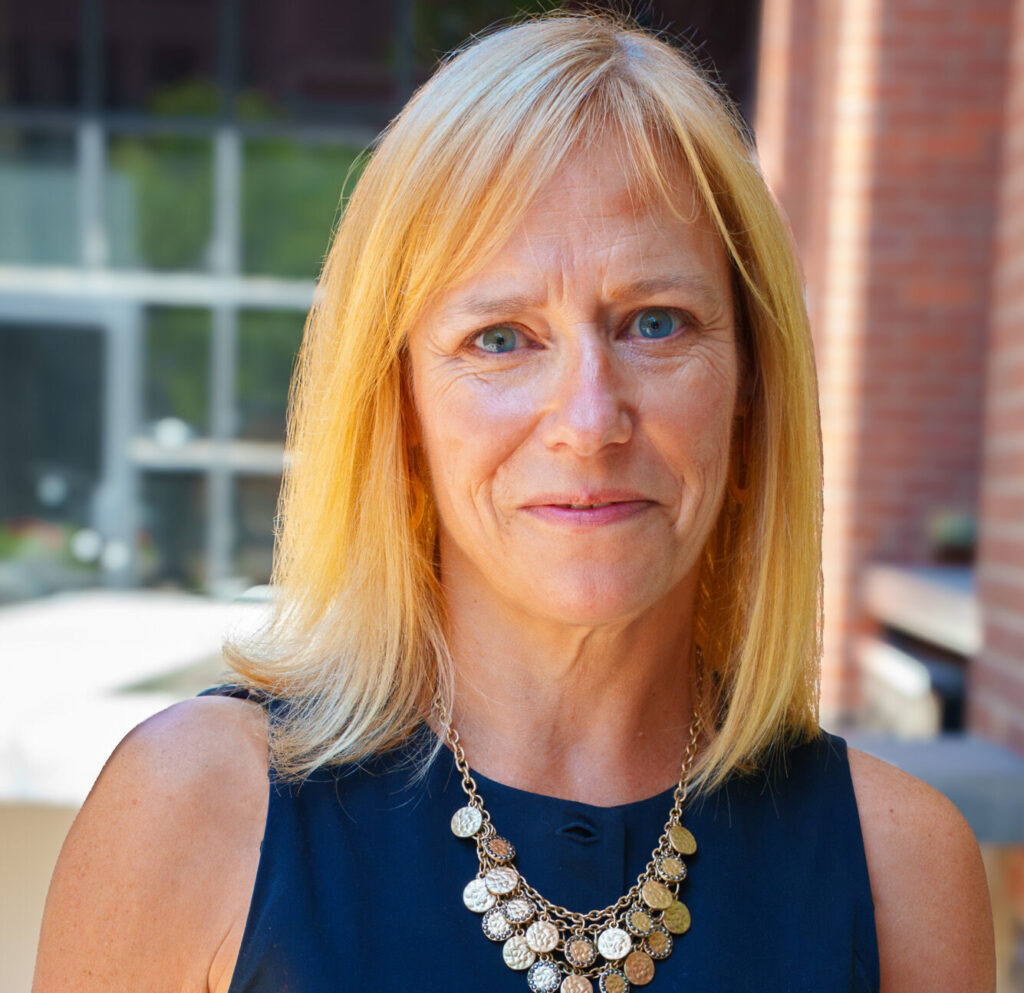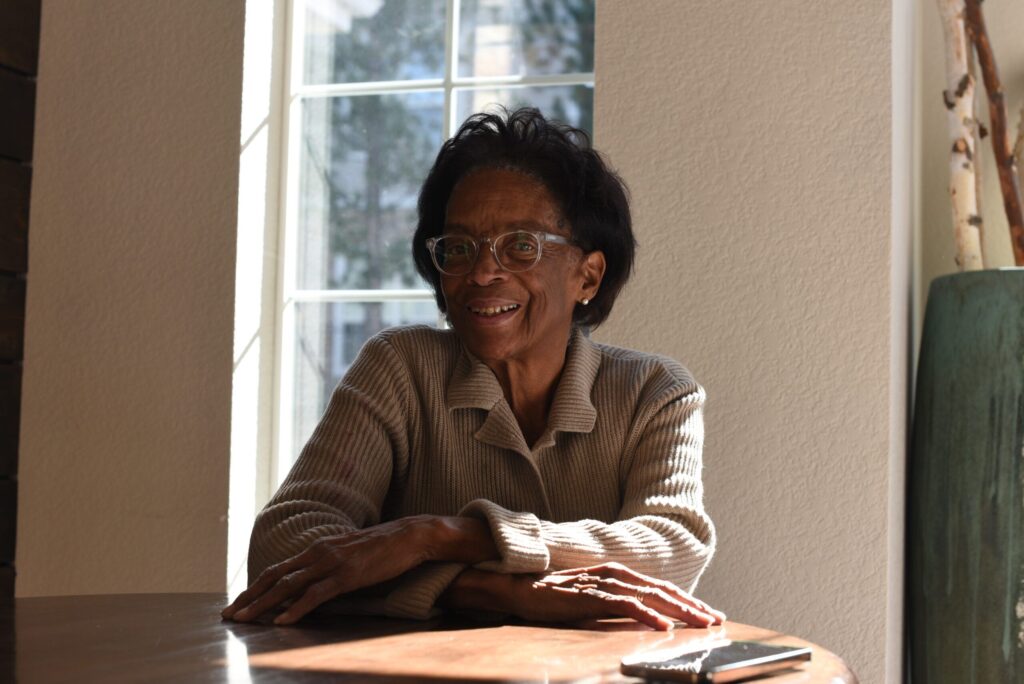Voices of voters: Price of groceries, wolves, illegal immigration dominate Western Slope worries
Regardless of their political stripes, voters on the Western Slope worry most about the cost of living.
Yes, they worry about immigration, jobs and a host of other issues, including education, abortion and the reintroduction of wolves.
But the voters from seven counties who spoke to Colorado Politics said it’s the cost of housing, groceries and gas that is keeping them awake at night.
House District 26
That worry didn’t escape the notice of those running to represent them in the General Assembly.
The candidates had shown up to the Club 20 debates on Sept. 21 at the Colorado Mesa University. The event featured major party candidates for seven state House races, two state Senate races, two state board of education races and the contests for the 2nd and 3rd congressional districts.
In House District 26, which is made up of Moffat, Routt, Rio Blanco and Eagle counties, the debate focused on losing coal jobs and the transition away from coal-fired energy.
Republican Nathan Butler — who had the podium to himself, as incumbent Rep. Meghan Lukens, D-Steamboat Springs was unavailable due to a prior commitment — said he supports workers in the coal industry, telling the audience there’s a three-year gap between the closure of the Moffat mine and the launch of a natural gas substitute.
“That’s three years too late for the workers who are about to lose their jobs,” he said.
“We can’t ask people to wait for three years without a paycheck, without security, and without knowing how they’re going to survive,” he added. “The very fabric of our district is beginning to unravel because of decisions that are being made on the Front Range with little concern for the people who are living through this crisis.”
The state should invest in retraining now, Butler said. He later pointed to a study from Colorado Mesa University that said the 2,800 jobs in the coal industry would be replaced by only about 500 jobs in the transition.
“It doesn’t make up for what we’re losing,” he said. “I don’t want to see these people kicked out of their homes because they can’t afford to keep the lights on.”
Lukens sent a statement, saying she would continue to work on promoting economic development and adding that people who have relied on fossil fuel energy for jobs would not be left behind.
She noted her legislative successes in her first term, such as sponsoring a bill on economic support for communities affected by rail and coal, and another to reauthorize the Rural Jumpstart program.
“I’ve experienced the affordability crisis in Colorado first-hand and I am committed to lowering the high cost of living, and bolstering our middle-class,” Lukens said in her statement.
She also voiced her support for farmers and ranchers in their struggles following the reintroduction of wolves in Colorado, backing legislation supporters said would mitigate the negative impacts of their introduction. She sponsored a bill in 2023, requiring the state to hold off on wolf reintroduction until all legal challenges had been resolved. The governor had vetoed the bill.
In Eagle, Kerry, a man in his 60s who sported a long, flowing white beard, said the major issue this election cycle is illegal immigration, which he opposes. He also said the ballot measure to stop the hunting of mountain lions, bobcats and lynx is better left to the Colorado Parks and Wildlife agency, while also saying that hunters trespassing on private lands has gotten out of hand.
Abbey, an Edwards resident in her 30s, said, too, is concerned about immigration. She said immigrants are being targeted as “bad and criminals.” She also said she supports Amendment 79, which would put the right to an abortion into the state constitution.
Support for Amendment 79 also came from Mallory in Glenwood Springs. But inflation and the economy — and making sure she can buy groceries — are her primary concerns, she said.
April, an Eagle resident in her 40s, said she is most interested in preserving her First and Second Amendment rights, and she’s opposed to Proposition KK, which would levy an excise tax on sales of firearms and ammunition. She believes marijuana is a cause of some of the mental health issues in Colorado.
“I don’t believe hunters should be paying for mental health (services)” that stem from drug use, she said.
Elida, a resident Gypsum who is in her 20s, said the economy, immigration and inflation are her top issues, but housing is particularly a problem. She said she lives with her parents due to high rental costs.
House District 57
Worries about affordability preoccupies the minds of voters from House District 57, though many also talked about the illegal immigration crisis that’s also now hammering America’s interior cities.
In New Castle, Linda, who is in her 60s, said everything is too expensive, whether it’s gas, groceries or utilities.
She wants more secure borders, too.
“I’m not against immigration but they must follow the law,” she said.
Lena, who is in her 70s and lives in Battlement Mesa, identified illegal immigration as a top issue.
“We can’t keep feeding these people” nor provide free rent, food or utilities, she said, adding immigrants need to come through legally and get a job.
“Nothing is free,” she said.
Lena also said she fears a World War III, given the conflicts going on in the Middle East and Ukraine.
In West Glenwood Springs, 24-year-old Dakota, of Carbondale, said she supports gun rights and is opposed to Proposition KK. She said she also wants to see more secure borders and tighter restrictions on immigration. Given that her dad worked in the oil field, she wants to see more U.S. oil production. Like others, she raised concerns about inflation and higher property taxes.
Delbert, a resident of the Riverbend Ranch neighborhood who is in his 70s, cited the “threats” of immigration and concerns about the economy as the issues that affect his vote. He also spoke in favor of Proposition 127, which would ban trophy hunting of big cats.

Election signs are posted along the entrance to Battlement Mesa, in Garfield County. Voters in the districts say they mostly worry about affordability, though they also mention illegal immigration, jobs and other issues.
In Parachute, Caitlin, who is in her 40s, said her biggest concern is affordable housing, groceries and the cost of child care.
Jeff and Pam, a couple in their 70s who live in Battlement Mesa, said they’re looking at candidates’ character. They want “mature, presidential, forward-thinking” candidates who are progressive in some areas.
Things “need to calm down politically,” Jeff said.
Pam wants lawmakers to work together, but the economy — and the price of groceries — are among her big concerns. They worry about gas prices, too, the couple both said. Jeff, who travels to Grand Junction for medical appointments, said he hunts for the cheapest gas prices when he makes those trips.
The candidates seeking to represent them — Democratic Rep. Elizabeth Velasco of Glenwood Springs and Republican challenger Caleb Waller of Silt — sparred on Saturday in Grand Junction, exchanging points on many of the issues that worry the district’s constituents.
But the two differed sharply on energy.
“If your intention is to regulate oil and gas out of business, you have no business in Western Colorado,” Waller said.
“We have aggressive goals when it comes to clean energy and emissions reductions,” Velasco said, as she noted her support for a bill to study small nuclear reactors as a way to transition away from coals.
Senate District 5
The two candidates hoping to represent Senate District 5 talked how to be heard at the state Capitol, where the Front Range dominates the conversation.
The district begins in Garfield County’s Glenwood Springs, heads west to Delta and Montrose and south to Gunnison and Lake City in Gunnison and Hinsdale counties.
While discussing being outnumbered, Catlin said every bill he runs is cosponsored by a Democrat.
“I don’t run bills that don’t affect the Western Slope,” he said. “Our voices are well heard, my bills make a difference.”
Buerger said he wants to see Front Range lawmakers visit the Western Slope and said he would play effective offense, not defense.
“The idea of going on offense bothers me,” Catlin replied. “We need to protect what we have, rather than making deals with those on the Eastern Slope.”
On water, Catlin challenged Buerger on a June 2022 interview, in which he said he favored renegotiating the 1922 Colorado River compact. Buerger responded that he wanted to make sure Colorado has a strong presence in the renegotiations of the operating guidelines.
“My mistake was a misunderstanding of the terminology,” Buerger said.
Buerger challenged Catlin on a vote against a bill setting up school-based mental health. School districts can’t afford it on the Western Slope, Catlin replied.
Buerger also challenged Catlin’s votes against bills on tax credits for local food systems, child care workers, property tax relief and the earned income tax credit, as well as support for making abortion a Class 1 felony.
Those bills weren’t ready for prime time, Catlin said of the tax measures. On the abortion bill, Catlin said he voted with his party.
House District 58
High prices, especially for groceries, is among the top concerns for Jane, who is in her 60s and lives in Delta.
She said she also would support abortion but with reasonable time limits, but without those limits would be a “no.” And while she supports LGBTQ rights, she also believes “things have gone a little overboard on morality.”
Water was among the issues identified by Sharon, who is in her 70s, another Delta resident.
“We want to make sure we get the water we need before it goes somewhere else,” she said.
But the economy and the border are also top concerns. She’s on Social Security, so rising prices are a problem. As for the border, too many people are being let in, she said.
“We’re not strict enough,” she said.
Leroy, 80s, has nine grandchildren and none of them can afford to buy a home, much less rent them. The housing market used to be affordable, he said.
Insofar as immigration, Leroy said his ancestors came over through Ellis Island in New York, and “you have to check in” legally. That should be the same for those coming across the border now, he said.

The Trump roadside sign stand outside of Delta, where Robert, a voter, gets ready for the day’s business.
At the DeVries fruit and vegetable stand in Olathe, Colorado Politics caught up with Pamela Friend, who six years ago talked about workforce issues, lack of water and low commodity prices. She also owns the drive-in down the road in Montrose.
COVER STORY | What worries rural Colorado as the election approaches?
Back then, she had trouble finding teens to work the drive-in, but said she doesn’t have that problem now. Her biggest problem today is the price of farm labor. She said she can’t pay a worker $25 an hour to pick tomatoes when she can only sell them for $18 a case.
Michael, who is in his 30s and in Montrose, had just spent $120 for groceries for two weeks for his family.
“You have to have two incomes” to get by, he said.
He’s been fortunate to find a place to live, given the cost of housing in the area, especially one that allows animals.
“I need to have a say” in the political environment, and that’s why she votes, according to Jenny, who is in her 40s and who lives in Olathe.
Gary, a carpenter in his 60s from Montrose and who is on a fixed income, worries about the economy, as well as America’s borders. It isn’t only immigrants from the south — it’s also people from Europe, Asia and the Middle East coming through, he said.
The race for House District 58 is between Democrat Kathleen Curry of Montrose and Republican Larry Don Suckla of Cortez. The district has eight counties, from the Grand Mesa in Delta County, east of Grand Junction, all the way to Montezuma County, on the border with Utah and New Mexico.
Curry is a former state lawmaker who represented the district from 2005 to 2010. She left the Democratic Party in 2010 and lost a bid for reelection as an independent. She’s back with the Democrats, but is getting virtually no support from the party.
Suckla is a former Montezuma County commissioner and rancher.
“We’re outnumbered,” Curry began, with only six House members from the Western Slope out of 65.
In the candidates’ questions to each other, Suckla asked Curry where she stood on “deporting illegals” in Colorado. Curry said that’s not an issue for the legislature, but said the agriculture sector relies on H2A-visa workers, and a broad deportation approach is not practical nor good for the Western Slope economy.
She asked how Suckla would get 33 votes on his bills, the number it takes to get a bill out of the House.
“I believe there’s some issues you don’t compromise on, such as the Second Amendment,” Suckla replied.
Wolves also came up, an issue that ranchers in the Gunnison Valley worry since it’s a targeted area under the wolf reintroduction plan.
Curry asked Suckla what he would do for livestock producers. Suckla said the wolves need to be delisted so they can be shot if they’re eating cattle. He said it’s not fair to have one group of people vote to affect another, likely referring to complaints that voters from Colorado’s urban centers decided the issue for rural residents.

Construction along Highway 50 in Gunnison County. Rural voters have often complained that their counterparts in Colorado’s urban centers have dominated state policy, deciding matters that affect the entire state.
House District 13
Outside the Salida Wal-Mart, Melissa, who is in her 30s and lives in Poncha Springs, said education and school safety are her top concerns, but low teacher pay is up there, too. She’s thankful her husband has a good job and benefits.
Her mom, Tammy, who lives in Nathrop and who just moved from Aurora two months ago, said said cost and access to health care is also an issue, and finding doctors is a problem.
“Unless you’re dying, you’re on a wait-list for months,” she said, adding she has also struggled to find affordable housing and to pay for groceries and gas.
Both Melissa and Tammy are teachers.
The two people who hope to represent them — House Speaker Julie McCluskie, D-Dillon and Republican challenger Dave Williams of Buena Vista — were the last set of legislative candidates to debate. They focused on, among other things, the reintroduction of wolves.
The district, which is made up of six counties, including Grand and Jackson counties, where the wolves have killed dozens of livestock in just a few months.
McCluskie called it the most challenging issue faced by the two counties. She said she’s fought hard to make sure the voices of ranchers are being heard by the governor and Colorado Parks and Wildlife. She said she’s “deeply frustrated with the lack of communication, the lack of trust building that has occurred” between the state and livestock growers. She pointed to a bill she carried with Catlin in 2023 to ensure $300,000 for wolf depredation, adding she will continue to fight for the interests of ranchers.
Williams, who blamed the legislature for allowing wolves to be reintroduced, said that legislators should have stood up against it.
“Progressives sided with their own, with their people in their caucus than their constituents in their counties,” he said.
The ranchers McCluskie mentioned don’t feel they’re getting the help they need, and they want to right to get rid of depredating wolves, he said.
“One cow, one calf, one sheep, and that wolf is gone,” he said.
McCluskie pointed out Colorado’s voters, not the legislature, decided the issue. She said that, since January, she’s been asking the state’s wildlife agency to come up with a definition of chronic depredation.
“We have asked for lethal removal of the depredating wolves of the Copper Creek pack,” she said, referring to a pair of adult wolves and their pups that have since been relocated.


